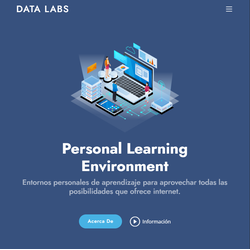
The Role of INAI
In the digital age, access to e-learning platforms has become a fundamental tool for education. However, when it comes to minors, the collection of personal information, such as emails, raises serious legal and ethical issues. In Mexico, the National Institute of Transparency, Access to Information and Protection of Personal Data (INAI) plays a key role in monitoring and regulating the use of personal data, especially when it comes to minors. This article explores why it is illegal for an e-learning platform to request Gmail emails from minors, under the framework of the INAI and international regulations.
The Protection of Personal Data in Mexico and the INAI
The INAI is the entity in charge of ensuring compliance with the Federal Law on Protection of Personal Data Held by Private Parties (LFPDPPP). This law establishes that any processing of personal data must be carried out with the informed consent of the data owner. In the case of minors, protection is even stricter, since consent must be granted by parents or legal guardians.
The INAI points out that the personal data of minors, including their email, are subject to a higher level of protection due to their vulnerability and the importance of guaranteeing their security in the digital environment. According to the LFPDPPP, companies that collect information from minors must implement additional security measures and have express authorization from parents to process this data.
International Laws: COPPA and GDPR
The importance of protecting the privacy of minors is not exclusive to Mexico. Internationally, there are laws such as the Children's Online Privacy Protection Act (COPPA) in the United States and the General Data Protection Regulation (GDPR) in the European Union, which regulate the collection of data from minors.
COPPA states that any online service directed to children under 13 must obtain verifiable parental consent before collecting personal information, including email. In addition, platforms must clearly report what type of data they collect, for what purposes, and how it will be used. In case of non-compliance, the sanctions can be severe, both financial and legal.
On the other hand, the GDPR, which is applicable in the European Union, includes specific provisions for the protection of minors. In this case, the age of consent is raised to 16 years, which implies that any platform that collects data from users under that age must have the authorization of parents or guardians.
Why is it Illegal to Request Gmail Emails from Minors?
The problem with requesting Gmail emails from minors on an e-learning platform is that this type of information is considered personal data, since it can be used to identify or track a user. Without parental authorization, any collection of data from minors violates the regulations mentioned above. In the case of Mexico, a platform that operates in national territory and that requests emails from minors without due consent would be violating the LFPDPPP, which could trigger investigations and sanctions by the INAI.
In addition, requesting Gmail emails without parental authorization also increases the risks of exposure of minors to personalized advertising, online tracking and, in extreme cases, cyberbullying or exploitation. Platforms must guarantee a safe and reliable environment that minimizes these risks through appropriate technological and legal measures.
Responsibilities of the Platforms and the Role of INAI
The INAI has the responsibility of supervising and sanctioning those companies that do not comply with the law regarding the protection of minors' data. E-learning platforms must be particularly careful, since, when dealing with minors, data protection standards must be more rigorous.
Among the main responsibilities of the platforms are:
- Obtain explicit parental consent before requesting or storing any personal data of minors.
- Inform in a clear and understandable way about the use of data collected.
- Implement robust security measures to prevent information leaks or unauthorized access.
If a platform does not comply with these requirements, INAI can impose significant fines and require immediate changes to data collection practices.
Requesting Gmail emails from minors without the consent of their parents is illegal, both in Mexico and under various international regulations. The protection of personal data is a fundamental right, and in the case of minors, the responsibility for safeguarding their information falls on the platforms that provide online services. The INAI, together with international laws such as COPPA and GDPR, works to ensure that minors can enjoy a safe digital environment that respects their privacy. E-learning platforms must take these regulations seriously and adjust their data collection practices to comply with laws and protect their most vulnerable users.


